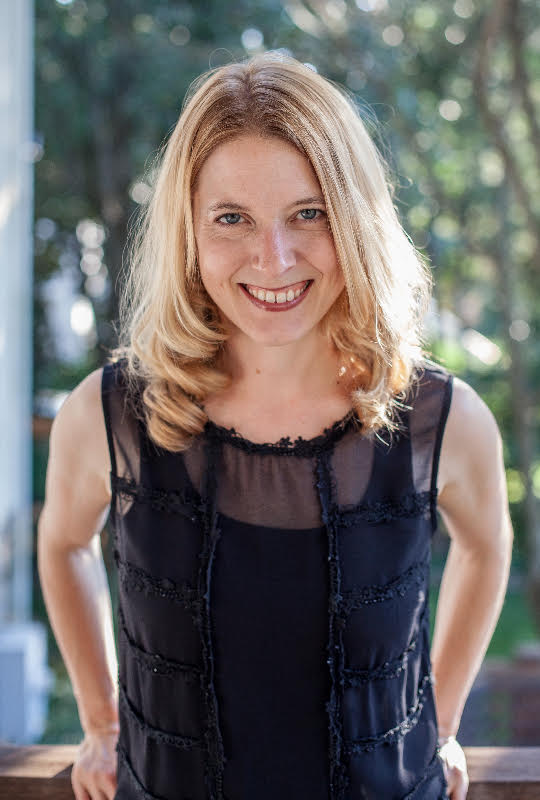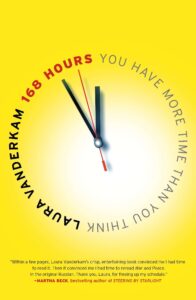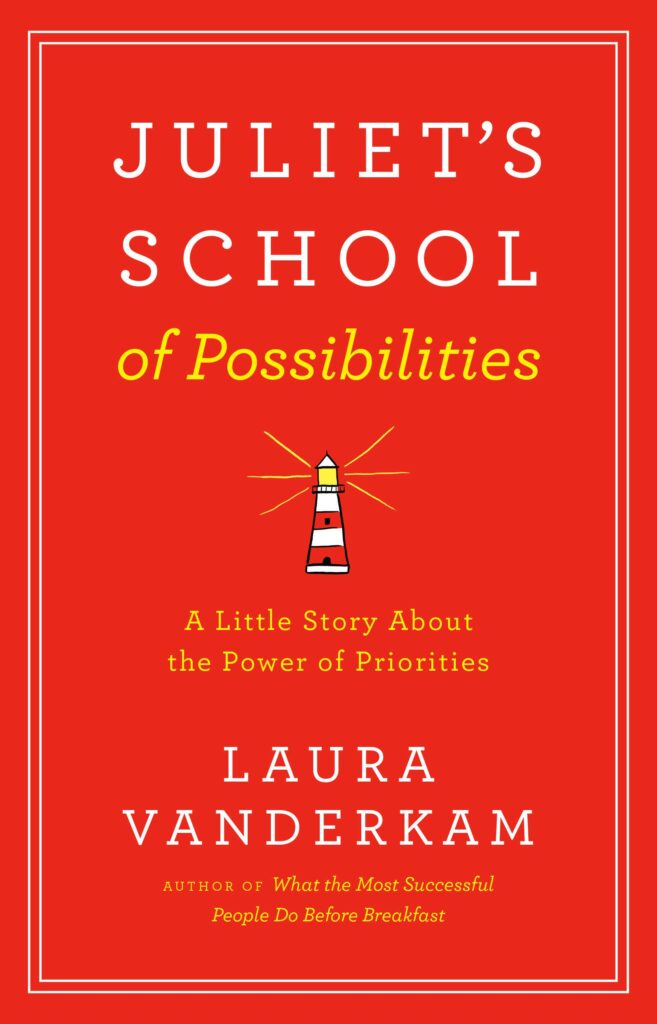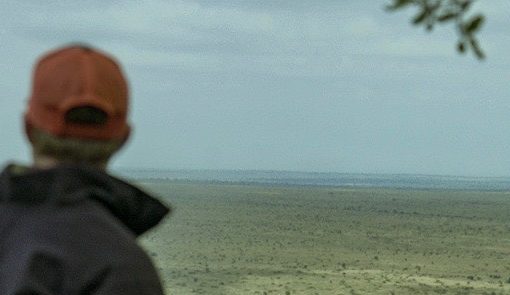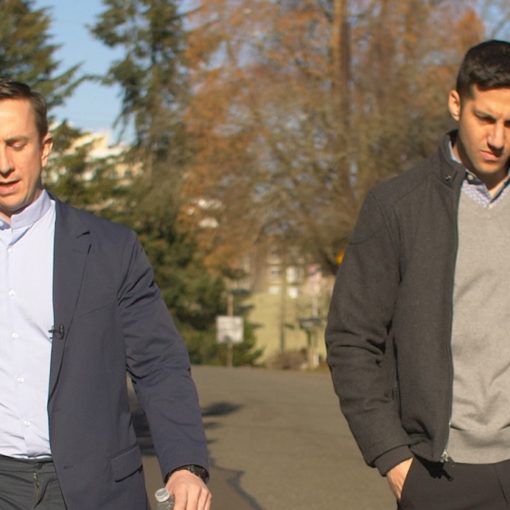Episode 97 of the Agents of Innovation podcast features an interview with Laura Vanderkam, a time management adviser and expert, and author of many books on the subject. She also hosts a podcast Before Breakfast and co-host of the podcast Best of Both Worlds (with Sarah Hart-Unger). She and her husband live in the Philadelphia suburbs with their five children, which range from teenagers to toddler. She blogs almost daily at lauravanderkam.com.
“I think time management matters because we live our lives in hours,” said Vanderkam. “If we are spending them on things that matter to us, that’s awesome. And if we are spending them on things that don’t matter to us, maybe that can be a little nudge to really think about how we want to spend the time we have on this planet in ways that are meaningful and enjoyable for our ourselves and the people we care about.”
“Here we are, spinning on this improbable planet, in the middle of cold space, and I’m worried about how to turn a 60-minute meeting into a 45-minute meeting,” said Vanderkam. “But I think there is a larger dimension to this which is that: this is the time we have. We’ve been given a certain amount so hopefully we can be good stewards with what we have.”
When Laura was a teenager, her first jobs included babysitting, Fazzoli’s Italian restaurant, a drug store, and even a newspaper route. Perhaps this is where she first learned to balance time. As she said, a newspaper route, as one example, is “something you can do before you do other things. You’re going to do it between six and seven in the morning. So, you can do it and then go and do whatever else you do,” such as go to school, another job, or take care of a family member. “It’s just something you can do outside the normal 9-to-5 that often fits in people’s lives.”
Laura grew up in North Carolina, lived in Indiana, and went to Princeton University in New Jersey. At Princeton, she studied public policy and international affairs and also took classes in creative writing.
“I knew I wanted to be a writer in some way, shape or form,” said Vanderkam. “I did a lot of journalism during college, freelanced for area newspapers in New Jersey… I was delivering papers and writing for the papers.” She also did internships for various publications and right after college she did a year-long internship at USA Today, where she worked on their op-ed page. “My clips for USA Today were then very helpful for opening doors to write for other places.”
“In general, in life, it’s good to have a subject that people then know you for, even if you are a general interest person, which I am,” said Vanderkam. “There’s all sorts of things I like to write about, but you figure out there are certain topics that people are more drawn to and that seem easier for you to write about than necessarily others and that you keep wanting to go deeper into. And, after you spend a certain amount of time studying a particular area, you wind up by the nature of having spent that time knowing more about it than probably the average person off the street. And so that allows you to use that expertise to open up doors for various things as you’re building your business that you might speak about, write about, consult about, or whatever else that you can do that people might be willing to pay for. So, for me, time turned out to be that topic.”
Her work was noticed by Penguin publishing house and together they came up with an angle about what she could https://lauravanderkam.com/books/168-hours/write about. They ended up settling on a time management topic and 168 Hours was her first book, published in 2010. 168 hours refers to the number of hours in a week. “People say 24/7 all the time. No one ever multiplies it through,” said Vanderkam.
“I have always been interested in productivity stuff, in trying to get a lot done. I attempted to be a very productive person myself,” said Vanderkam. “That took on a new urgency when I became a parent for the first time, when my first child was born in 2007. Suddenly, I had these various professional things I was trying to do and I’m also trying to fit the pieces of the rest of my life in which now has something else that is taking a lot of time in it as well.”
“So I became quite interested in the stories of other people who were managing to do things professionally while having great personal lives as well, who were not making those harsh tradeoffs people often say success requires. So, as I began writing about them, it was something I realized I liked to write about,” she said. “There turns out to be somewhat of a market to learn how successful people spend their time and how the rest of us can learn how they allocate their hours.”
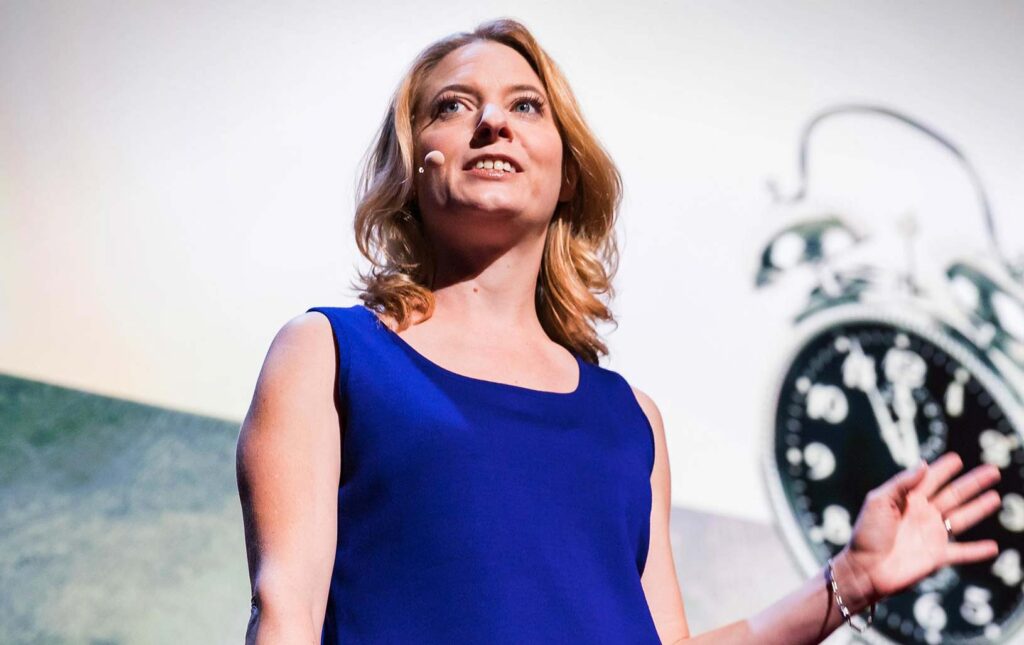
“The first thing I always recommend people do if they would like to spend their time better is to actually figure out where their time is going now,” said Vanderkam. “If you don’t have the data on where your time is going now, you’re just shooting blind … In order to change something you have to figure out where the time is going now and whether you’re happy with that or whether you’re not happy with that.”
Vanderkam suggests first trying tracking your time over a one week period. She uses weekly spreadsheets. She also suggests time-tracking apps or walking around with a notebook to record the things you are spending your time on each hour of the week.
Vanderkam creates a spreadsheet with half hour blocks starting with 5:00 AM on Monday through 4:30 AM the next day. She checks in with herself three times a day, which she says “takes about a minute each time,” to be sure she had recorded all of her activities up to each of those points in the day. “Most people can remember the past five hours pretty well, that’s not a distant memory. You were here. You just lived through it,” said Vanderkam. “If you let it go longer than that, it’s going to be harder to reconstruct.”
For Vanderkam, she has a lot to manage. In the mornings she and her husband are getting her five kids up and off to school. A nanny helps most weekday mornings. While Laura has been working remotely from home for over a decade, her husband began working from home after the COVID-19 pandemic began. Soon, they will be moving to a new, larger home to accommodate their separate work spaces.
Working from home had always been “a trend of the future,” said Vanderkam. But it never really materialized until COVID-19 forced more people to do so. “We realized that in fact many information-related jobs could in fact be done from home. All of those in-person meetings could have been done virtually … that has been a welcome development for so many people. There’s so much time, energy, and environmental resources wasted moving people from one place to another when they did not in fact have to do that five days a week.”
She likes that most of our society is going to be moving to a more hybrid model, where working from home will be done two or three days per week and working in an office will be another two or three days a week. “That’s probably a great balance for many people.”
“With that said, working from home is not easy for people to adjust to,” said Vanderkam. “It is a skill like any other skill.”
“You just have to get adjusted to the idea that you are more in charge of your time than you were before,” said Vanderkam. “And once you realize that, it’s liberating. I can work how I want to work.”
One of the challenges for some people is not to know when to stop working when the workspace is within the home.
She also suggests planning on Friday. “I am a Friday planning evangelist. I really think that using this time for planning the upcoming week is one of the easiest ways to make life feel doable.” And specifically she thinks Friday afternoon is a great time to plan the upcoming week because “most of us are not doing anything else of consequence on Friday afternoon. You’re just floating into the weekend. It really is a low opportunity cost time.”
“We have more energy at the beginning of the week and the beginning of the day, which means that Monday morning could be like prime execution spot for whatever our toughest or biggest task is, the most important thing we need to accomplish. That would be great to just get there on Monday morning and do it as opposed to figuring out on Monday whatever that thing is and using energy that could have been spent on execution deciding what to do. Whereas Friday — you are not going to start anything new Friday afternoon — so that’s the time to think about what future you should be doing.”
During your Friday planning, she suggests making yourself a three-category priority list for the upcoming week: career, relationships, and self. Then ask: what are the most important things for you to be doing in those three categories. This forces you to put something in each of those categories. “That right there is going to nudge you to have a more balanced life.”
She also suggests looking at the calendar and the commitments you already have such as planned meetings and deadlines. And maybe use the time for a “calendar triage” to get rid of things you don’t want to do or you don’t think is going to happen. Or maybe take care of some small tasks you can quickly get done right now. She also uses that Friday to start her planning not for the upcoming weekend, but for the one after. The reason for that is that it will give you something to look forward to when the Monday morning grind starts. And for Laura, the more advanced knowledge she has of the schedule of each of her five kids and their activities, the better off her time management is. By planning ahead, families can do lots more fun stuff together.
Laura also suggests people plan adventures into their lives. “Adventure is anything out of the ordinary,” she said. “So often when we’re saying ‘where did the time go?’ what we are saying is I don’t remember where the time went. And that’s because the time is not memorable in any way. You didn’t do anything that would form a memory with that time. And so it is entirely forgettable and thus your brain forgets it. And that can make time feel like it is speeding up as we get older and I don’t want that for people. I want us to enjoy and revel in time and feel like it is thick and rich and not the slick menoliam floor that we’re sliding to death. We want to actually enjoy the time that we have.”
She suggests “consciously putting in little adventures … to make time more memorable.” Her formula: one big adventure and one little adventure every week. One example of a big adventure to her family is a trip to the hills, a half a weekend day. A little adventure is something you can fit in within an hour, such as a weekday lunch or weekday evening. “It changes the entire experience of a normal Tuesday,” said Vanderkam. “It completely changes what a normal workday feels like because you look forward to it, you experience the adventure while you’re having it, and you can remember it afterwards. Now it’s a Tuesday that stands out in memory and that makes time feel a lot more rich and full.”
Of course, over the time of your life, you’ll need to adjust as circumstances in your life change. “These time shocks happen and we sort of react by just doing whatever is right in front of us and choices get made that aren’t necessarily active choices,” said Vanderkam.
During the pandemic, with more people working from home, they were given more hours in the day since they were commuting much less. “Where did that time go?” said Vanderkam. “You may not be surprised to hear that screen time increased, quite a bit.”
“Time will be spent on something. Whenever there is a huge time shock of some sort or another,” said Vanderkam. “Every time that happens, you should look at where your time is going and say, ‘does this still fit with how I wish to be spending my time?’ Let me make sure that if I lose something it’s because I want to and if I don’t want to lose whatever good habit I had, how can I find another time to do it?”
Laura has written both non-fiction and fiction works. “I like reading fiction, so I thought I’d try writing it. If you are a writer, it’s just something you always think of doing.” And while her book, Juliet’s School of Possibilities, is a novel, it’s about time. “It’s a self-development book, in the business parable genre.”
Vanderkam’s main advice to entrepreneurs is to “make time just to try stuff, especially when you’re starting out. You don’t know really what’s going to work and so you have to try lots of different things.”
“Success is just a numbers game,” said Vanderkam. “You need a certain number of at-bats. And nobody bats a 1,000.” But most people bat in the 300’s, she says. And that means that about 3 out of 10 things are going to work. And if you’re continuously trying new things, then that’s going to be a lot of stuff that works.
“Carve out time to do speculative stuff,” said Vanderkam. She says, for her, “Thursday morning is when I try stuff and then you don’t feel bad when Thursday morning didn’t work out. By carving out that time for speculative stuff, you don’t feel like it’s wasted time and you’ll probably get some useful information out of it that you can then put into practice for the rest of your life.”
Laura Vanderkam is using some of her time now to finish her next book, which will be out next fall. It will be titled, Tranquility by Tuesday: Nine Ways to Calm the Chaos and Make Time for What Matters. For now you can follow her work at lauravanderkam.com and make your Twitter timeline more productive by following her @lvanderkam.
You can listen to the full interview with Michael Eisenberg on Episode 96 of the Agents of Innovation podcast on Apple podcasts, Audible, Spotify, Stitcher, SoundCloud, or wherever you listen to podcasts (and please don’t forget to write a review on any of those platforms!) You can also follow the podcast on Facebook, Instagram, or Twitter.
For those looking to directly connect with and learn from the many guests of the Agents of Innovation podcast, please consider joining the Fearless Journeys community today!

